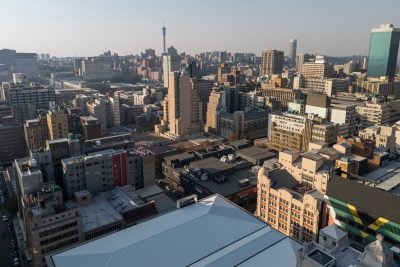Just as global equities have been declining this year amid jitters ranging from post-Covid-19 inflation to Ukraine War disruptions, the Nigerian stock market has been going up. A surge sustained for the better part of this year has seen the all-share index of the Nigerian Exchange gain more than 20%.
Yet, that is only part of the story given the runaway performance of companies such as Learn Africa (formerly Longman), which made a return of 271% in one year, and Guinness Nigeria, which gained 248%. They were supported by other impressive performances by companies in sectors as varied as energy, commodities, telecoms and publishing.
In the brewing industry, the three-cornered fight between local units of global giants Diageo, Heineken and AB InBev, has piqued investor interest in Diageo’s Guinness Nigeria Plc. The company provided a more than twofold return for its stock investors in the past year. Over a 52-week period, the share price jumped from N28.5 ($0.06) to reach N110 ($0.26), before retreating slightly as holders took profit.
Nigerian Breweries, the Heineken unit that has been the market leader since 1946, had struggled in recent years amid higher production costs and excise charges. But it turned in a decent profit for 2021 that saw its shares returning more than 45% in the past year. International Breweries, a subsidiary of the world’s biggest brewer and latest entrant AB InBev, also registered a 38.6% gain.
Palm oil processors, Presco Plc and Okomu Oil , have both profited from the global commodities boom that has received an added boost from the disruptions occasioned by the Ukraine War. Over the past 52 weeks, Presco’s share price has surged from N68 per share to as much as N208, posting an annual return of 137.49%. Okomu Oil ranged between N95 and N219 per share over 52 weeks, with an annual return of 135%.
Telecoms boosts market
Perhaps the biggest lift to the market this year came from telecoms giant MTN Nigeria, which went from N160 to as much as N270 per share over a 52-week period, with a one-year return of more than 60%. The company had announced a share sale in December, which concluded in February with 661.25m shares sold to retail investors and institutional investors. It was the first public offer in Nigeria executed digitally, and since its conclusion, the market capitalisation of MTN Nigeria has soared to number one, beyond the combined value of all banks and insurance companies in the country.
In the same telecoms industry, Airtel Africa, the second-biggest operator after MTN, has seen its share price more than double over 52 weeks from N601 to as much as N1,608, giving a 96.8% return to its investors.
Oil and gas company Seplat Energy gave a more than 100% return in one year as its share value went from N585.40 to N1,319 over 52 weeks. Seplat has positioned itself as the Nigerian company best equipped to take over important assets of international oil companies divesting from Nigeria’s onshore oil fields in a bid to meet zero-emission targets.
Why a bull market now?
With fixed-income and money market placements attracting low interest in the past two years in Nigeria, investors keen on staying ahead of inflation have taken to the stock market to seek out and reward companies that are doing well. This partly accounts for the rally in the shares of companies that have produced positive results.
Equity valuations in Nigeria have been relatively cheap since foreign investors fled the market ahead of the 2019 elections. Since 2003, investors typically returned to the market after the elections were settled to give the market a significant post-election bounce. However, investors wary of President Muhammadu Buhari’s capital control measures and lack of will for market reforms in his first term failed to return, denying the market the traditional post-election surge of investors in 2019.
This situation was then followed by the coronavirus pandemic, which further depressed risk appetite and saw stocks tumble even further as Nigeria went into a second recession in four years.
As the impact of Covid-19 began to ease last year, many Nigerians began returning to the market to pick up stocks, giving the bourse a much-needed buoyancy. Institutional investors also piled in.
Many foreign investors that were unable to repatriate their profits as a result of Nigeria’s foreign exchange crunch have also taken advantage of the opportunity offered by the stock market and ploughed in their funds there, according to several stock analysts. All of these factors have acted in concert to provide the Nigerian bourse enough lift to buck a global trend of plunging equities accelerated by fears of inflation and measures by central bankers, led by the US Federal Reserve Bank, to contain them.
Will elections end bull market?
The question many market watchers are now trying to decipher is how long the bull run will last. Will investors keep faith with the market all through the year, given that another general election is due early next year, with political risks and uncertainties bound to be heightened?
“In previous election cycles, the run from the market usually sets in towards the third quarter,” said Michael Ojobor, a Lagos-based securities trader. “My expectation is that a sell-off will still come later in the year, as the vote draws closer.”
Other market analysts are adopting a cautious outlook. Tayo Akinwale, a market analyst who works for a business advisory in the Nigerian capital, Abuja, said his organisation has been advising clients not to liquidate all their positions ahead of the elections.
Akinwale’s argument is that buying and holding on to the stocks with proven records of performance won’t hurt, with some investors already pricing in the political risk. Some potential buyers who were put off by Buhari’s conservative approach and lack of crucial economic reforms are already convinced his administration will be succeeded by a more reform-minded regime, and are willing to stay the course with their investments, according to Akinwale.
“For these reasons I expect some resilience even as elections approach,” Akinwale said. “The opportunities to make money will always be there in a market of over 200m people with needs that have to be met.”
Want to continue reading? Subscribe today.
You've read all your free articles for this month! Subscribe now to enjoy full access to our content.
Digital Monthly
£8.00 / month
Receive full unlimited access to our articles, opinions, podcasts and more.
Digital Yearly
£70.00 / year
Our best value offer - save £26 and gain access to all of our digital content for an entire year!
 Sign in with Google
Sign in with Google 



